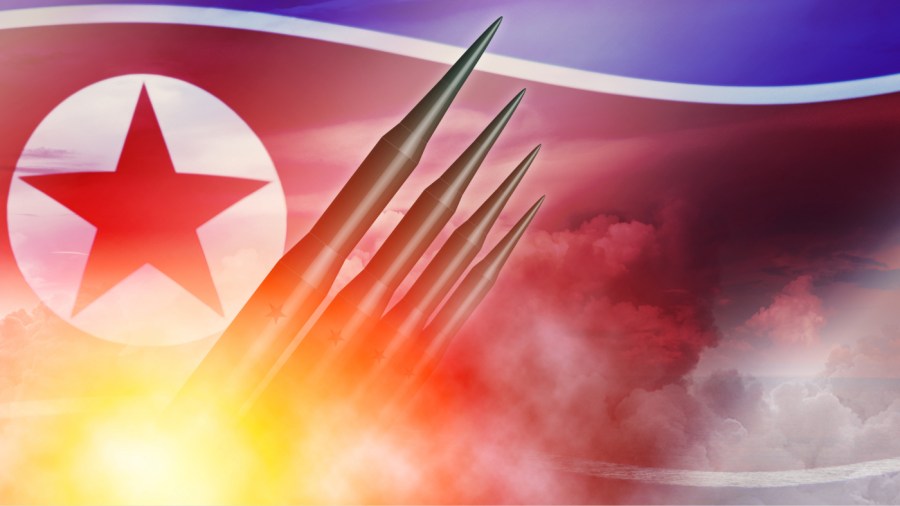As the dust settles in Iran, all eyes turn to North Korea

All the talk about the damage done to Iran’s nuclear facilities during last month’s bombing and shelling by the Israelis and the Americans has to be speculative. No one on the ground in Iran is telling us whether the deepest complex at Fordow was destroyed or badly damaged; we’re not likely to know for months or years — if ever — what really happened in the labyrinth of tunnels dug into the side of a mountain.
President Trump may be forgiven for engaging in hyperbole when he says Fordow was “obliterated” by the bunker-busters dropped from B2 bombers, while his critics, in reverse hyperbole, insist the Iranian nuclear program was set back only a few months. Both these estimates have their roots in political bias as much as physical or scientific evidence.
One set of foreign observers, though, has got to know more: the North Koreans, who have long been advising, aiding and abetting Iran on its nuclear program.
Former President George W. Bush, in his first “state of the union” address in 2002, described North Korea and Iran as poles in an “axis of evil” that also included Iraq, then ruled by Saddam Hussein, overthrown by U.S. forces on Bush’s orders more than a year later. The axis, without Iraq, has flourished ever since the North Koreans provided first the missiles and then the technology for producing its own version of the North’s mid-range Rodong.
There’s no word how many North Korean advisers were still in Iran during what Trump has called the “12-day war,” but it’s safe to assume North Korea’s leader, Kim Jong Un, would have gotten a realistic version of what really happened. How could it have been otherwise, considering that most of the missiles fired back at Israel by the Iranians were of North Korean design?
Iranian and North Korean experts have been going back and forth ever since Saddam Hussein initiated the Iran-Iraq war in the 1980s, when the North began plying Iran with artillery shells and other armaments. After Pakistan tested its first nuclear device in 1998, the “father” of the Pakistani bomb, physicist AQ Khan, provided North Korea with nuclear technology that the North then passed on to Iran. Considering the North’s central role as the source of Iran’s rise as a near-nuclear power, we may be sure Kim will want to maintain a relationship from which his regime has reaped billions of dollars.
“Hundreds of people are still working on missile sites” in Iran, Bruce Bechtol, author of numerous books and articles on North Korea’s armed forces, remarked on a podcast as the bombs and shells were still falling on Iran. “North Korea does not evacuate its people when war breaks out.” If Iran is to recover from the strikes, it will be with North Korean advice and assistance as usual.
All eyes are now on North Korea for its response to the Israeli and American strikes.
“I doubt that it will take any provocative action,” David Maxwell, a retired American army colonel who did five tours in South Korea as a special forces officer, remarked to me in an email, “but I would like to see if it takes any action to secure its own facilities out of fear of a US strike.” North Korea “will certainly want to get [bomb damage assessment] from the Iranian facilities,” he said. “They will want to learn from these strikes and determine what modifications they will need to make their own facilities to further harden them. They will want to know if our ‘bunker buster’ can really bust their bunkers.”
Decisive though the American response may have appeared, it cannot compare with the bombing needed to wipe out North Korea’s nuclear facilities. Iran may have been on the brink of producing its first nuclear warheads, but North Korea has made dozens of them — perhaps 100 or so. Kim is very unlikely to yield to U.S. and South Korean demands that he give up his entire nuclear program. At least, however, the American bombing, as well as strikes by Tomahawk missiles fired by American submarines, should demonstrate what the American military machine is theoretically capable of doing to the North Koreans.
Trump and South Korea’s new president, Lee Jae-myung, are both looking for renewed dialogue with North Korea. There is little chance of either of them endorsing a strike against North Korea. By attacking the Iranian sites, however, Washington should have given Pyongyang an idea of the hell that might befall North Korea if Kim were to begin to make good on his threats against South Korea It’s possible, optimistically, to speculate that Kim, far from responding adversely, may be inclined to talk after seeing this display of military might against his Iranian friends.
It’s also possible that Kim might choose to strengthen his own defenses, to make the North Korean sites beyond the reach of any bunker-busters, while shoring up his ties to Russia as well as China. Time will tell.
Donald Kirk has been a journalist for more than 60 years, focusing much of his career on conflict in Asia and the Middle East, including as a correspondent for the Washington Star and Chicago Tribune. He is currently a freelance correspondent covering North and South Korea, and is the author of several books about Asian affairs.